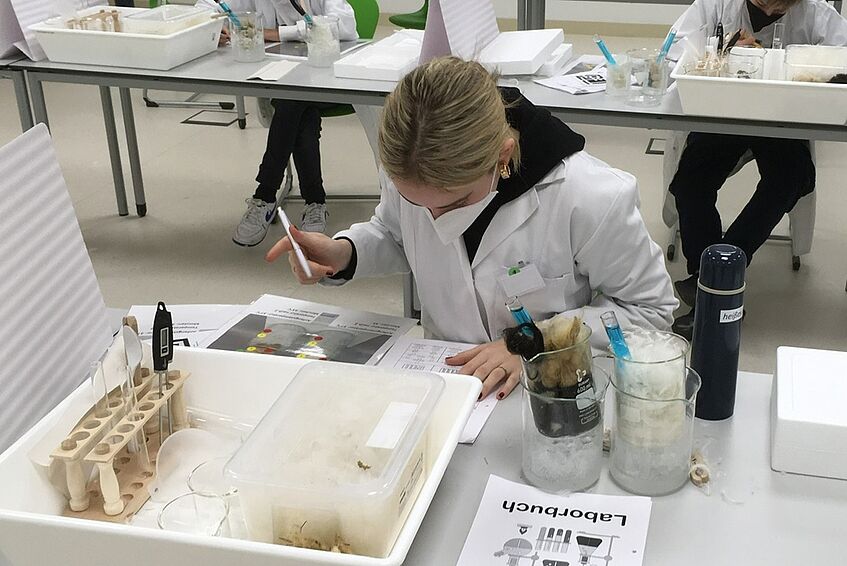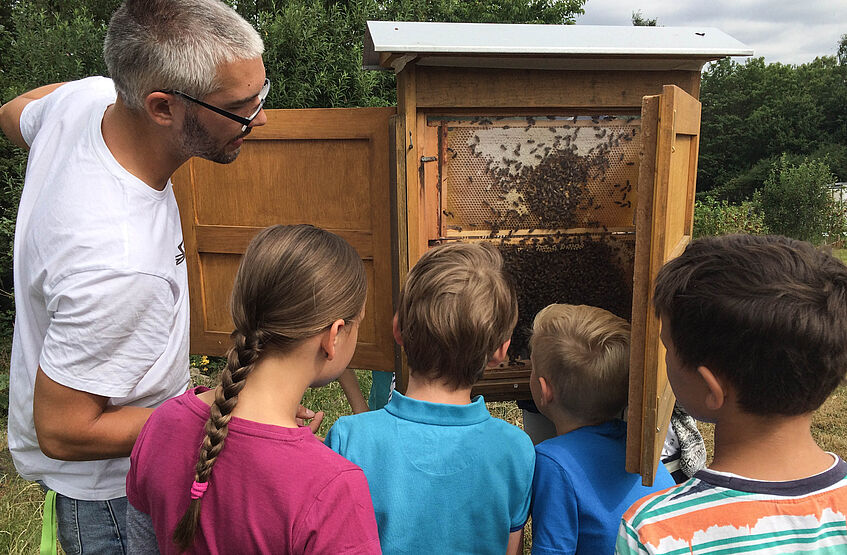Research in "Didactics of biology"
The research interests at the Austrian Competence Center for Didactics of Biology (AECC Biology) are in the field of empirical teaching-learning research. We investigate selected aspects of learning and teaching in the subject "Biology and Environmental Studies".
On the one hand, the research is done quantitatively, e.g. with the help of competence and achievement tests as well as questionnaires on affective components, such as motivation and interests. On the other hand, qualitative methods, such as interviews and open response formats, are also used.
The aim is to derive scientifically based recommendations for the school practice , educational policy, and the training and continuing education of future biology teachers from the results of our research.
Current research topics at the AECC Biology

Scientific Inquiry
We focus on scientific methological competencies in biology, especially on students’ experimentation skills. Our research takes place in the affiliated teaching-and-learning laboratory AECC Biology at the University of Vienna or in the context of interventions in classrooms.
The aim is to support the competence model of scientific thinking with its sub-competences and facets in a multi-perspective way. Since experimental competence does not only play a role in biology classes, we pursue an interdisciplinary approach and cooperate nationally and internationally with colleagues from the didactics of physics, chemistry and geography.
Our current research projects on the topic of "Scientific Inquiry" can be found here.

Environmental education and education for sustainable development
Education for Sustainable Development (ESD) has cross-curricular relevance in national and international educational standards and curricula and serves to create a balance between social objectives and the protection of natural resources. The educational mission encompasses ecological, economic and social aspects in order to sensitize people to environmental and developmental issues and to identify possible courses of action.
In Vienna, we investigate, among other things, the influence of learning settings with exploratory nature experiences and original encounters on affective and cognitive aspects of environmental literacy (e.g., environmental knowledge, connectedness to nature, interest in nature, environmental awareness, environmental behavior, and willingness to protect nature) in children, adolescents, and pre-service teachers. We are also exploring this in particular in the context of bee education at the "Bee.Ed" research and teaching apiary.
You can find our current research projects here.

Climate education
Climate education has been identified by leading researchers as a socio-economic tipping point to trigger societal dynamics to stabilize the global climate. Teachers are therefore essential multipliers for the transformation of our society.
We train pre-service teachers and teachers as multipliers for climate action within the framework of our project "Climate Education4Future" and cooperate with various educational actors in order to contribute to a more livable world through education in the climate crisis.
At the same time, we use a mixed-method approach with quantitative and qualitative research instruments to investigate how climate education can be successfully implemented in schools and non-formal education.
Our current research projects on climate education can be found here.
Plant Awareness Disparity (früher Plant Blindness)
Als Antwort auf die Frage, wieso Menschen oft wenig über Pflanzen wissen oder diese in ihrer Umgebung nur als Hintergrund registrieren, wurde 1999 (Wandersee & Schussler) das Konzept der plant blindness eingebracht. Der Fokus lag damals auf der fehlenden visuellen Wahrnehmung und dem Erkennen von Pflanzen. Ein derzeitiger Diskurs versucht das Phänomen aufgrund des Ableismus sowie der Anspielung an eine Behinderung in Plant awareness disparity (PAD) umzubenennen (Parsley 2020). Seither wurde stetig an der Theorie weiter geforscht und viele weitere Ursachen, Aspekte und auch Folgen wissenschaftlich untersucht. Die anfängliche Definition der PAD kann die inzwischen resultierende Komplexität des Phänomens nicht mehr beschreiben (Pedrera et al. 2021). Dies spiegelt sich auch in wissenschaftlichen Abhandlungen zum Thema wieder, in denen selten Unterscheidungen zwischen Ursachen, Folgen und sozioökologischen Einflüsse getroffen werden, sondern der Begriff inzwischen – fälschlicherweise - als selbsterklärend angenommen wird.
Mit dieser Problematik beschäftigen sich verschiedene Forschungen, die gerade am AECC durchgeführt werden.

